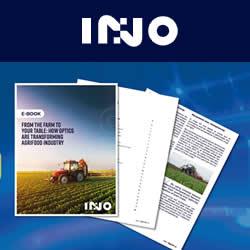Cargill and Nestle Purina partner on regenerative agriculture adoption to reduce the carbon footprint of Purina dry pet food products
Investment in regenerative agriculture is estimated to reduce the carbon footprint of Purina’s U.S. grain supply from Cargill by up to 40 percent over the next three years
Nestlé Purina is investing in farmer adoption of regenerative agriculture practices across the company's corn and soy supply chains through a new partnership with Cargill, one of the largest ingredient and agricultural solutions companies in the U.S. This work will support soil health and reduce the carbon footprint for Purina dry pet food products across North America, contributing to a more sustainable future for people and their pets.
The partnership is expected to support the adoption of regenerative agriculture practices across more than 200,000 acres of corn and soy farmland in the Midwest and is estimated to reduce the carbon footprint of the Purina grain supply from Cargill by up to 40 percent over the next three years.
"Our vision is to make regenerative agriculture commonplace across the industry," said Stewart Derechin, vice president, global partner leader, Cargill. "Through partnerships with customers like Nestlé Purina, we are helping farmers produce food more sustainably while also increasing the productivity and resilience of their farms. We're working to scale these practices to more than 10 million acres of North American farmland by 2030 to reduce the carbon footprint of the U.S. agriculture and food supply chain and build a more resilient food system."
This partnership is one way Nestlé Purina is making progress toward its global ambition to reduce carbon emissions and help advance regenerative food systems across its supply chain. Purina is investing to support farmers across several states in the Midwest as they transition to regenerative agriculture practices such as cover cropping, no/low tillage, crop rotation, nutrient management and soil erosion control.
"We care about making quality pet food with responsibly sourced ingredients, and that's why Purina is supporting farmers' transition to regenerative agricultural practices, with soil health restoration at the forefront," said John Foster, global category leader, cereals & grains, Nestlé. "Partnerships like this help create shared value for farmers, pet owners and the planet."
Cargill supports a portfolio of regenerative agriculture programs, such as Cargill RegenConnect®, that allows it to meet farmers where they are and provide tools and resources to support their transition to regenerative agriculture. These practices, including cover crops and reduced tillage, have the potential to sequester greenhouse gas emissions, improve water quality and use, increase weather-related crop resilience and improve farmer productivity.
Cargill has advanced regenerative agriculture practices on 880,000 acres of North American farmland since 2020. This supports the company's vision to make regenerative agriculture commonplace across its global supply chains—helping farmers to produce food more sustainably while increasing their productivity and resiliency.
About Cargill
Cargill is committed to providing food, ingredients, agricultural solutions, and industrial products to nourish the world in a safe, responsible, and sustainable way. Sitting at the heart of the supply chain, we partner with farmers and customers to source, make and deliver products that are vital for living.
Our 160,000 team members innovate with purpose, providing customers with life's essentials so businesses can grow, communities prosper, and consumers live well. With 159 years of experience as a family company, we look ahead while remaining true to our values. We put people first. We reach higher. We do the right thing—today and for generations to come. For more information, visit Cargill.com and our News Center.
Featured Product

